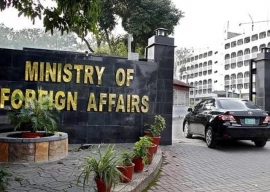
Agriculture has suffered not just from the slump in international commodity prices. It is a sector in which overproduction hits the grower (remember the story of the farmer who hanged himself for fear of plenty) and underproduction hits the country. Although agriculture is largely a private-sector activity, the state has to balance these two extremes through a sensible price support policy. In addition, the state has to subsidise relevant research and, when appropriate, inputs. After the devolution under the 18th Amendment, there is considerable confusion in policy formulation and ownership. This is why the farmers’ package announced by the prime minister has not made much headway.
The convening of the Punjab Agriculture Conference 2016 last week has raised hopes of an agricultural revival. The conference made a serious effort to recognise that the prosperity of Punjab depended on the prosperity of the farmer. It brought all the stakeholders together to set the future strategic direction for agriculture, formulate a plan of action for 2016-2018 and thinking up a supportive policy framework. In a vertically operating bureaucracy, a holistic sectoral view involving horizontal coordination is not easy. Hopefully, the active participation of all the five departments involved — agriculture, livestock, forest, irrigation and food — laid bare the constraints and produced a consensus on a prioritised agenda for 2016-18.
Good policy cannot deliver without political will, adequate resources and the capacity to govern and execute. Reputed to be a doer, Chief Minister Shahbaz Sharif’s presence at the conference signalled political commitment. The announcement of a hefty Rs100 billion package by him removed the financial constraint. His unequivocal statement that the money will be in addition to the allocations for the existing programmes is a departure from the practice of announcing packages by lumping together existing projects and programmes. A Kissan Commission is to be set up to oversee the implementation. The chief minister also hoped that the agriculture package would benefit small cultivators. This is crucial, as majority of the cultivators are small landholders. The conference resolved to transform every farmer into a progressive farmer. But there was a presumption that only large farmers can be progressive. Corporate agriculture, a nonstarter so far in Pakistan, was allowed a full session. There was no discussion on the skewed land distribution, absentee landlordism and the relationship between farm size and productivity. That said, a beginning is in sight to address the neglect of agriculture.
Published in The Express Tribune, March 25th, 2016.
Like Opinion & Editorial on Facebook, follow @ETOpEd on Twitter to receive all updates on all our daily pieces.














COMMENTS
Comments are moderated and generally will be posted if they are on-topic and not abusive.
For more information, please see our Comments FAQ